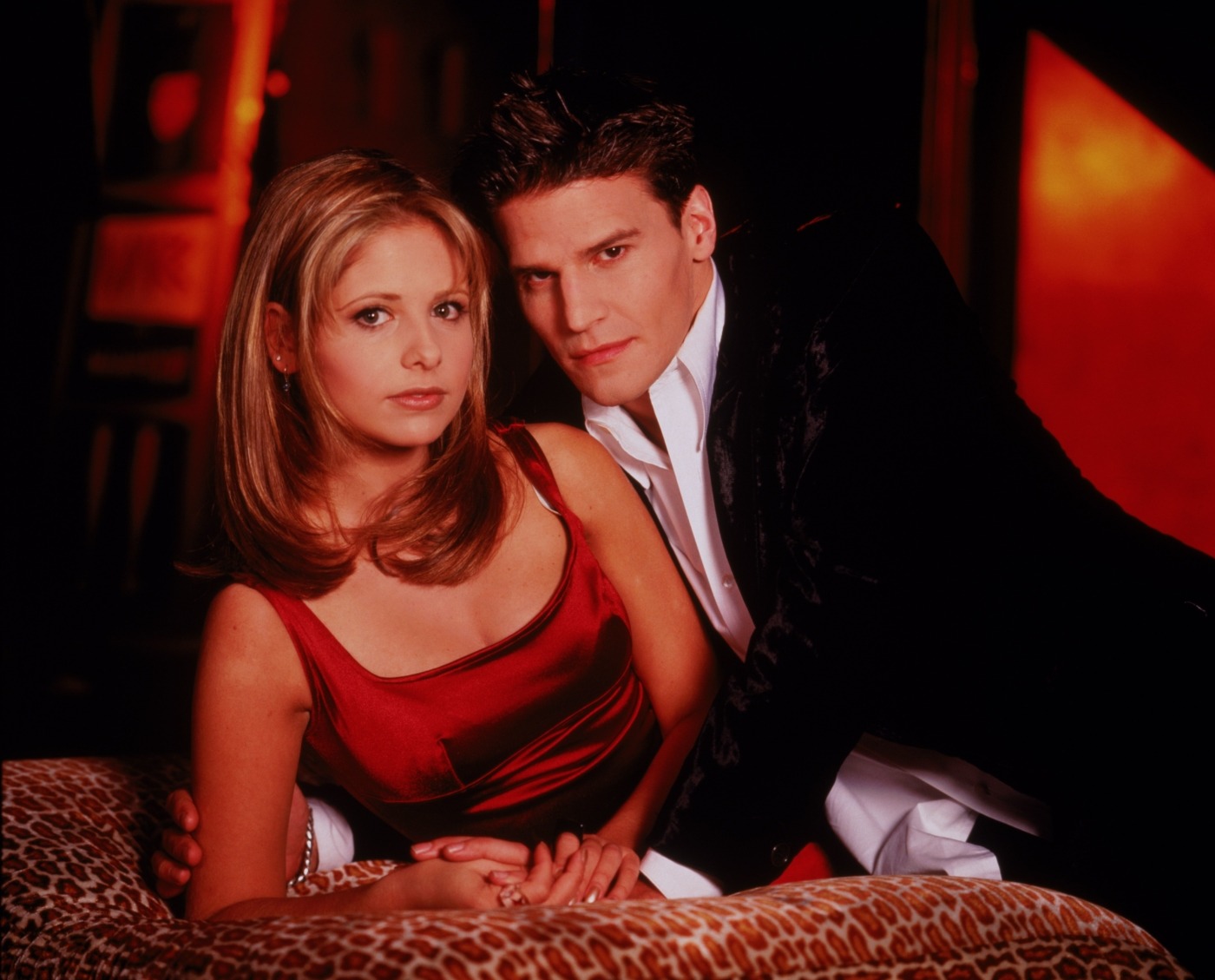20 years on, Angel is still better than Buffy
On October 5th, 1999, one Buffy the Vampire Slayer’s most popular characters, Angel, received that greatest of honours: A self-titled spin-off show. Beginning after Buffy’s third season, Angel would only outrun its parent show by a year, being cancelled after its fifth season, despite an incredible cliffhanger. Whereas Buffy focused initially on the idea of ‘high school as hell’, Angel was instead a hard-boiled, supernatural neo-noir, wherein the title character’s attempts to form a detective agency were superseded by yet another threat to the world, in the form of demonic law firm Wolfram and Hart.
I’m very glad I watched Buffy. Its second, third, and fifth seasons in particular are tremendous television
A small confession: I watched Angel before its parent programme. Only an episode (Season 5’s ‘Smile Time’), but it was enough to make my 12 year-old self greatly curious. I asked to borrow my older brother’s DVDs, only to be told I couldn’t watch Angel until I’d finished seasons 1-3 of Buffy the Vampire Slayer, at which point Angel sets out on his own to fight crime and the forces of evil in Los Angeles. A spoiler? Perhaps. But then the presence of David Boreanaz’s brooding vampire with a soul, in the knowledge of Angel’s existence, was a spoiler in itself.
With that, I set about watching as much Buffy as I could, so I could switch over to Angel as fast as possible. I’m very glad I watched Buffy. Its second, third, and fifth seasons in particular are tremendous television. However, its episodic nature and struggles to adapt to a post-high school setting (the infamous ‘Doublemeat Palace’ episode in Season 6 for example) meant that by the end, I was counting down the episodes, keen to say I’d completed Buffy.
Angel rescued several base-breaking characters from obscurity, in the form of queen bitch Cordelia Chase and bumbling former Watcher Wesley Wyndam-Pryce
Angel, while by no means a perfect programme, did not suffer from these transitions, able to tell a relatively joined-up story across its five seasons, even if there were a few bumps along the road. Without the anchor of Sunnydale High and its Hellmouth, Angel instead faced the underbelly of Los Angeles, dealing as regularly with common criminals as murderous vampires and demons, though the supernatural threat of Wolfram and Hart quickly established itself as the premier danger to Angel Investigations. Episodes included a turf war between street gangs and vampires, a body-hopping demon serial killer, and the aforementioned ‘Smile Time’, in which Angel is transformed into an adorable felt puppet. Honestly. It’s great. Watch it.
Furthermore, Angel rescued several base-breaking characters from obscurity, in the form of queen bitch Cordelia Chase and bumbling former Watcher Wesley Wyndam-Pryce. Free from their enforced social roles on Buffy, they became some of the best characters in the franchise, with Cordelia developing into one of the most crucial players in the storyline and a believable post-Buffy love interest for Angel, while Alexis Denisof’s Wesley underwent one of the most successful gritty reboots of any character on television, going from bumbling Brit to cynical, haunted demon hunter almost seamlessly.
Angel develops a lot of what made Buffy great, while jettisoning some of the more puerile and questionable elements of the show
There’s a good deal of tension between the main cast, with very few characters morally ‘good’. Indeed, unlike Buffy, who would dispatch the ‘Big Bad’ of every season by the end, many of Angel’s victories were hollow, causing lasting change to his life and relationships. This greater realism, and the freedom enabled by a change of scenery, makes Angel far more enjoyable. While lacking Buffy’s relentless pop-culture references and snarky humour, Angel’s Los Angeles is populated by enough dark comedians to prevent the cynicism becoming all-pervading. There are dud episodes and dodgy characters (such as Angel’s miraculous son Connor, played by the unbearable Vincent Kartheiser), but an engaging story arc and the development of a believable dynamic between the main cast prevents too much being skipped.
There are few spin-offs that are superior to their parent show. Only Frasier springs to mind immediately. But Angel develops a lot of what made Buffy great, while jettisoning some of the more puerile and questionable elements of the show, creating a darker, yet more relatable, more serious, yet in any cases funnier, product, that stands up two decades on- something which cannot be said for all of Buffy.

Comments (3)
loud and wrong
Definitely interested I’m checking out Angel. Love that you mentioned Frasier as a superior spin off. I will also throw Mary Tyler Moore Show spinoff Lou Grant into the ring. They did something no other show had done before nor done since taking a half hour sitcom character and putting them into a hour drama spin off and successfully doing so I might add.